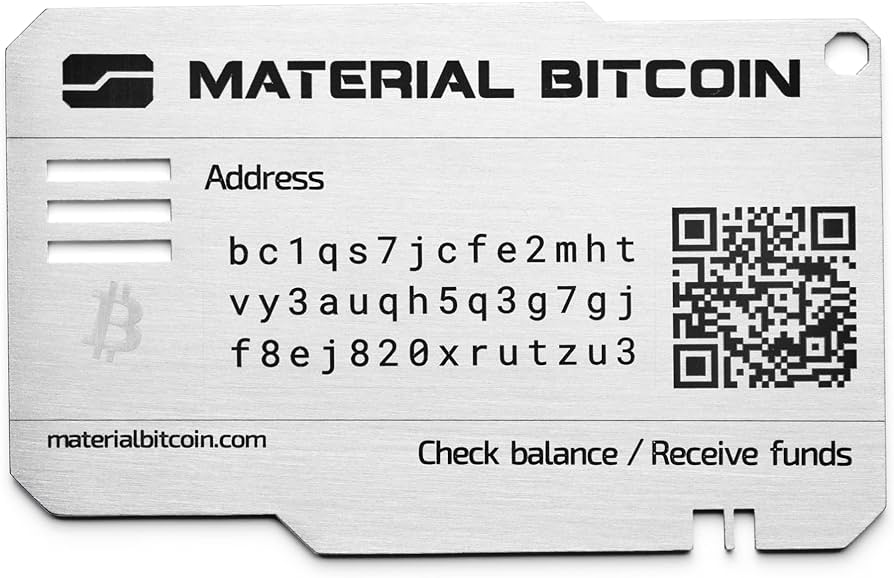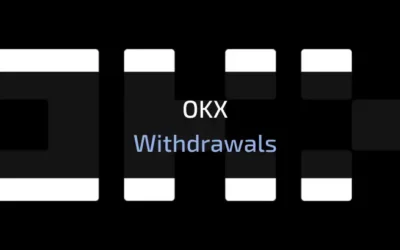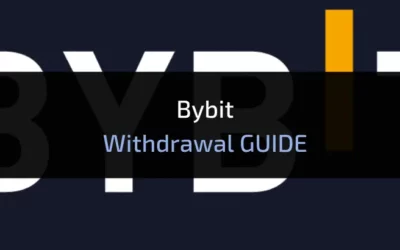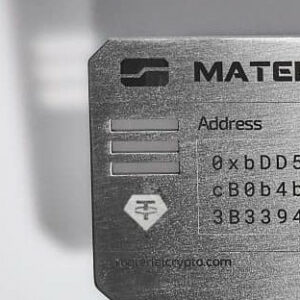Since the start of Bitcoin to the current evolving world of cryptocurrencies in 2024, the fundamental concept of digital currency has remained the same: to remain non-custodial.
But as the value of Bitcoin grows and more people globally use it as an investment opportunity but also for buying and selling goods, it is only natural that governments have taken notice. This means that crypto in many places around the world applies taxation laws.
But, is sending crypto to another wallet taxable?

In this post, we’ll answer exactly that. We will look into what makes a crypto transaction taxable, focusing primarily on the U.S. but we’ll also look at Canada, the UK, and the EU.
The goal in this post is simple: Whether you’re trading, transferring, buying, or selling, knowing these rules will help you understand your responsibilities with crypto taxation.
Understanding Crypto Taxation – What Do I Pay Tax On?
Certain crypto transactions are taxable, and it’s so crucial to understand what makes a transaction taxable.
To help understand which actions could apply taxation, here are some scenarios that usually apply tax:
1. Capital gains: When you sell or exchange your cryptocurrency for a higher value than what you initially paid, you’re required to declare and pay a capital gains tax. For example, if you bought 1 Bitcoin for $10,000 and later sold it for $30,000, you’d owe taxes on the $20,000 gain.
2. Capital losses: If you sell or exchange your cryptocurrency for a lower value than what you initially paid, then you can claim a capital loss. For example, if you bought 1 Bitcoin for $50,000 and later sold it for $10,000, you can claim a $40,000 loss.
3. Income tax: If you earn crypto as an income, such as through mining or staking, you’re subject to income tax. The value of the cryptocurrency is taxed at the time of receipt, based on its market value.

In the U.S. the IRS views crypto as property, meaning that it’s subject to the same tax rules as any other form of property, even though it isn’t necessarily tangible. You need to report your capital gains and losses on your tax return, and you may also need to apply self-employment tax if you’re mining or staking crypto as a job.
Internationally, these laws and regulations can be totally different. In Canada, crypto is considered a commodity, and capital gains and losses are subject to tax. In the UK, cryptocurrency is subject to capital gains tax, but there are some exemptions and relief available. In the EU, the taxation of cryptocurrency is determined by national law, and the rules vary from country to country.
Tax Implications of Wallet-to-Wallet Transfers
Wallet-to-wallet transfers are usually a straightforward way of moving your crypto but the intent behind moving your digital assets is what will indicate if it is taxable or not.
Let’s look at this example, if you’re transferring crypto between wallets that you own, then generally speaking, this action is not considered taxable. But, if you’re transferring Bitcoin or another form of crypto to someone else’s wallet, perhaps as a gift, then depending on your country and region, this would apply gift tax.
Gift Tax Regulations
In the U.S., gifting any crypto that is worth more than $15,000 in one year, might be subject to gift tax. Currently, the gift tax exemption limit is $11.7 million per person…it’s safe to say that most people won’t have to worry about exceeding this limit. But, if you do, you need to file a gift tax return and pay tax on the difference.

ℹ️ The receiver of the gift does not pay tax on the received crypto as long as the value is less than the exemption limit. They only pay tax if they later sell the crypto, which would apply a capital gains tax on the difference from the market value of when the gift was received to the time of selling.
Case Study: Coinbase VS. the IRS
As a real-world example, take the case of when the IRS won a legal battle against Coinbase in 2019. The IRS was granted the personal information of users who had made transactions worth more than $20,000 between 2013 and 2015. The government tax agency used this information to identify those users to verify if they owed taxes on their wallet-to-wallet transfers.
This is an eye-opening moment for anyone who invests in crypto to understand not only the tax responsibilities that you are subject to within your country of tax residence but also raise questions about the anonymity of non-custodial exchanges as a whole.
Scenarios of Sending Crypto to Another Wallet – Do I Pay Tax?
Is Sending Crypto to Another Address Taxable?
➡️ If you are transferring from your wallet to another of your own, then typically no, you do not pay tax.
Is Sending Crypto to a Friend Taxable?
➡️ If the transfer is a gift, it may be taxable depending on the amount. If it’s a payment for goods or services, it’s taxable since it is income.
Is Converting Cryptocurrencies Taxable?
➡️ Converting one cryptocurrency to another is taxable since the values of each coin vary, it implies capital gains or losses.
What Crypto Operations are Non-Taxable?
The world of crypto as a centralized and controlled version of currency goes against the nature of cryptocurrencies. However, as it gains popularity, it is becoming more accepted and regulated.
In the U.S, you do not report or are subject to taxes on digital assets if:
- Storing digital assets in a wallet, or account
- Buying crypto using U.S. or other fiat currency, including through electronic platforms such as PayPal and Venmo
- Moving assets from one wallet to another in your custody
Anonymous crypto wallets, like Material wallets, stir things up a bit. These non-custodial wallets are meant to be private and secure, meaning that ownership and transaction history are protected from agencies and tax enforcement laws.
⚠️ Warning:
This doesn’t mean that you are exempt from taxes, like we saw from the previous Coinbase case study, it just makes it harder for authorities to track and enforce taxation on these anonymous crypto-storage solutions.
Deducting Transfer Fees and Crypto Taxes
When it comes to managing your crypto taxes, don’t miss out on the potential for deductions.
Transfer fees, which are a part of nearly every cryptocurrency transaction, can work to your advantage. These fees can be added to your cost, which can later reduce the capital gains tax you owe when you sell or exchange your crypto.
According to a report by CoinTracking, the average transaction fee for Bitcoin is around $0.50, but it can vary. For example, if you buy $1,000 worth of Bitcoin and pay a $50 transaction fee, your cost is $1,050.
Material Bitcoin, Ether, and USDT wallets provide a safe, secure place to store and manage your crypto.

Overview of Taxable Crypto Operations
Purchasing Goods with Crypto: Buying anything from coffee to airplanes with cryptocurrencies counts as a taxable transaction.
- Exchanging Coins: Trading one cryptocurrency for another is a taxable event, with taxes due on gains from the crypto used in the trade.
- Mining: Earning crypto through mining activities is taxable and is also considered an income.
- Cashing Out: Converting your cryptocurrencies to fiat currency applies capital gains tax since there is a difference in value from when you first bought the crypto to when you cashed out.
- Making Donations: Donating crypto can sometimes not apply capital gains taxes and even qualify for a tax deduction based on the donated value.
For secure storage through all of your crypto transactions, Material offers a high level of security and protection as the ideal crypto cold wallet, keeping your crypto discreet and safe.
The Final Roundup & FAQs
Is transferring crypto to another wallet taxable?
Moving cryptocurrency between wallets you own is not typically taxable. However, transferring to someone else’s wallet, especially if considered a gift or payment, does mean tax implications depending on the amount.
How to minimize capital gains tax on cryptocurrency?
To minimize capital gains tax you should keep track of your cost and include the fees of transactions. Hold crypto for a year so that you can use the long-term capital gains tax rates, rather than the short-term rates. Finally, use your losses to your advantage known as tax-loss harvesting.
What are the most crypto-friendly countries in terms of taxation?
Portugal, Germany, and Singapore are known to favor crypto investors for tax policies. Portugal does not tax personal gains from the sale of cryptocurrencies, Germany allows tax-free sales of crypto held for over a year, and Singapore exempts cryptocurrencies from capital gains taxes.
Do cryptocurrency exchanges report to financial regulators?
In the U.S., cryptocurrency exchanges are required to report transactions to financial regulators. This is typically done to prevent money laundering and ensure compliance with tax laws. They may issue forms like the 1099-K or 1099-B to their users to facilitate tax reporting. For those looking to stay away from these types of exchanges, your best bet is a no-KYC exchange.








0 Comments